Matching skills Worksheets for Ages 3-9 - Page 2
35 filtered results
-
From - To
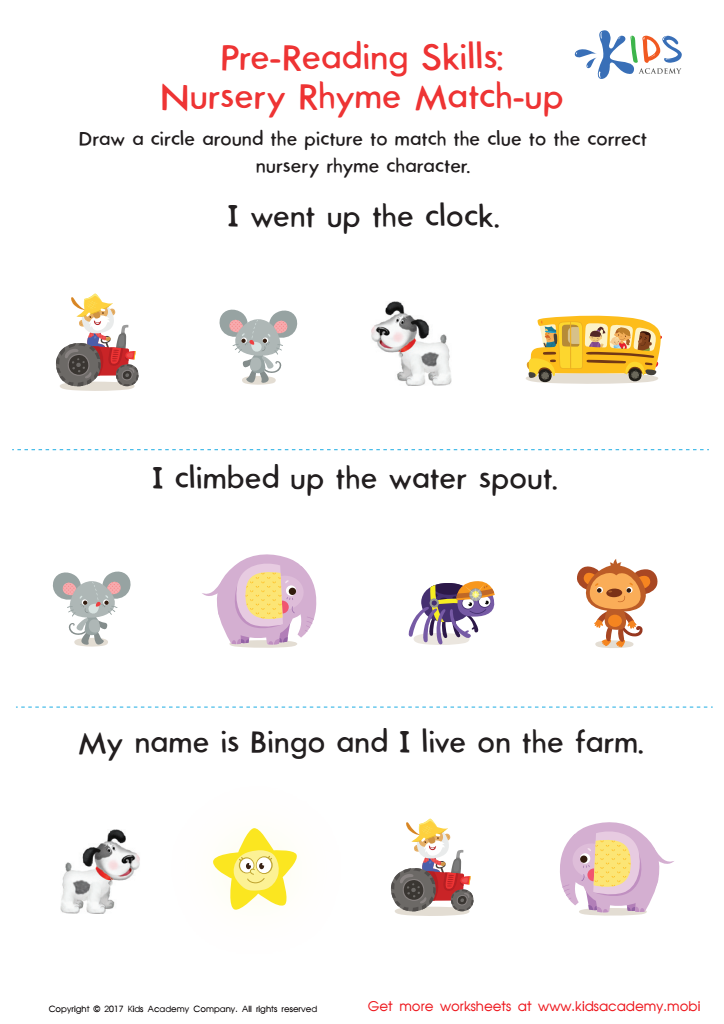

Nursery Rhyme Match–Up Worksheet
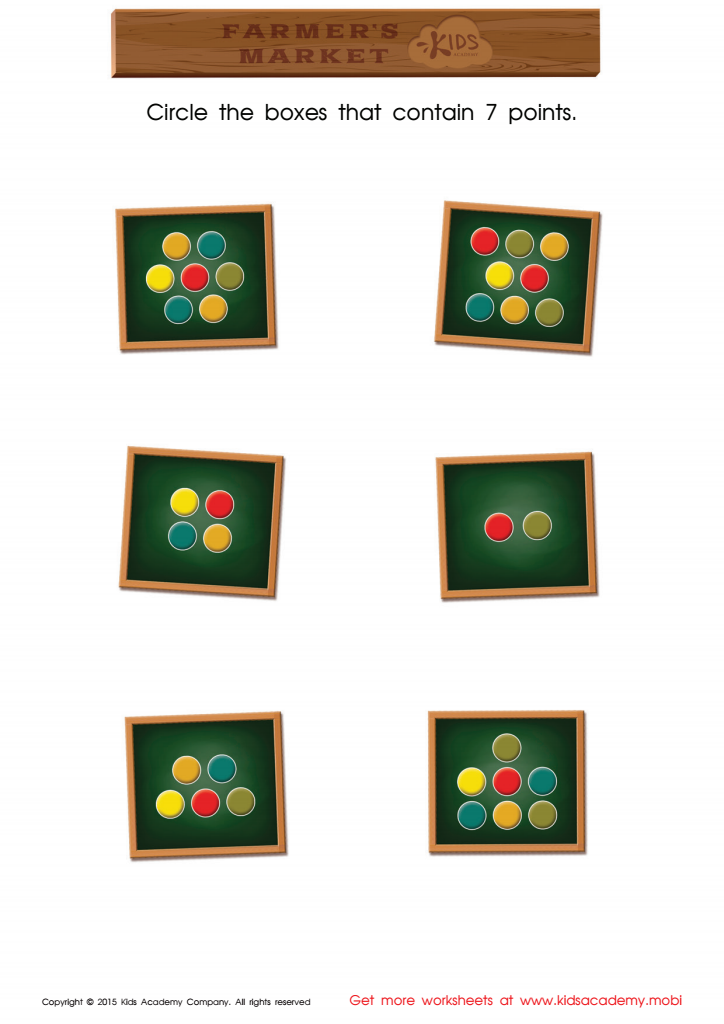

Count and Match Points 7 Math Worksheet
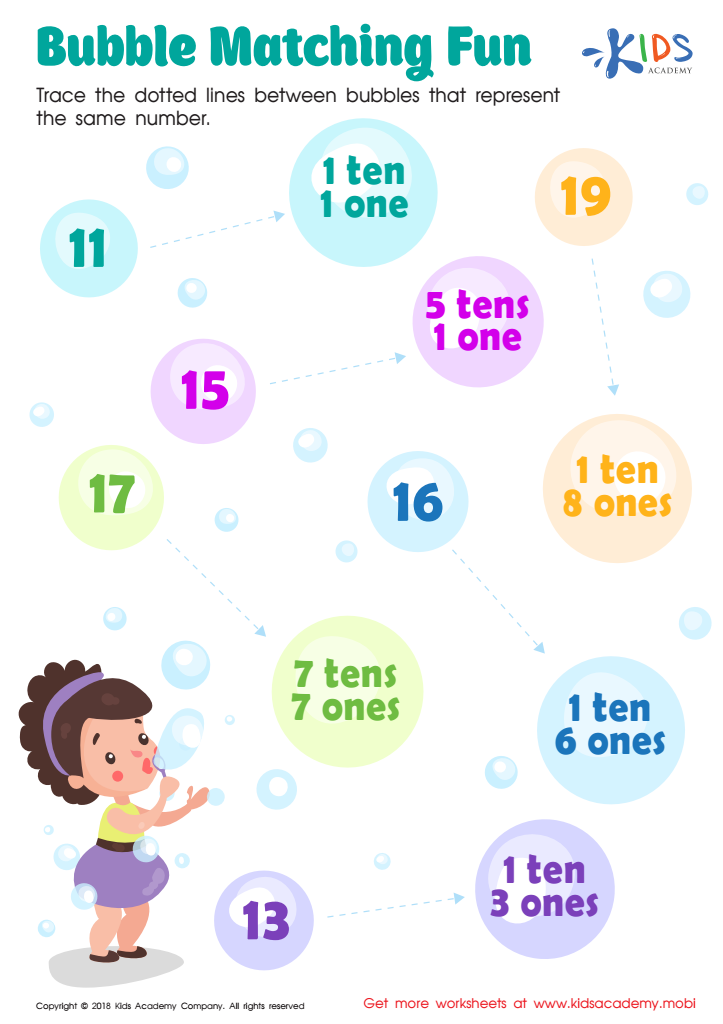

Bubble Matching Fun Worksheet
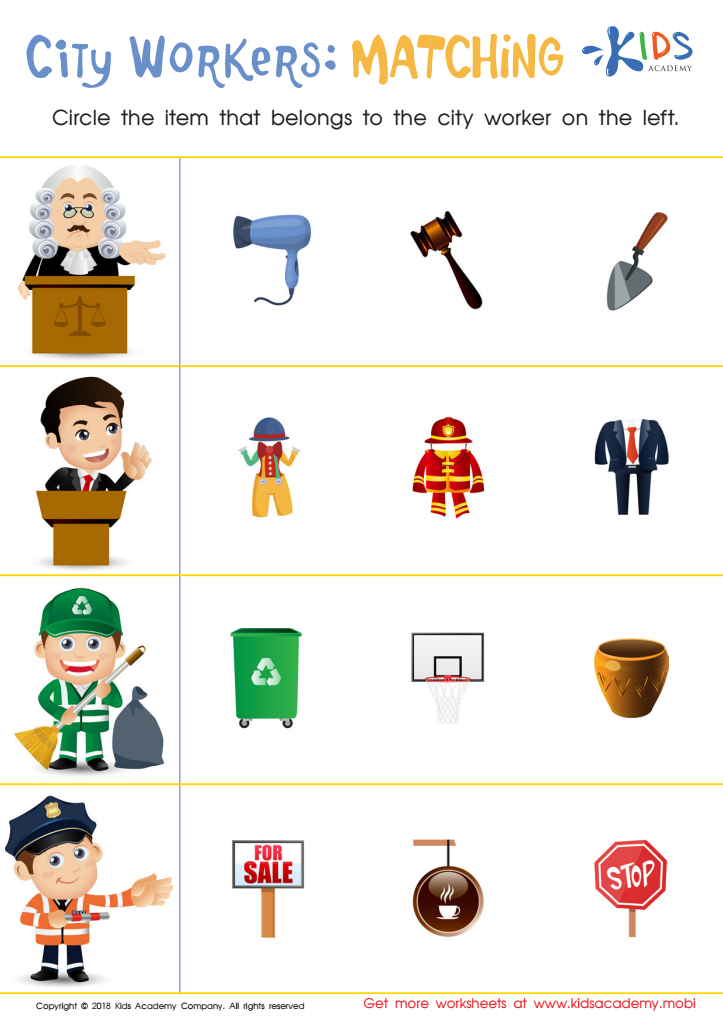

City Workers: Matching Worksheet
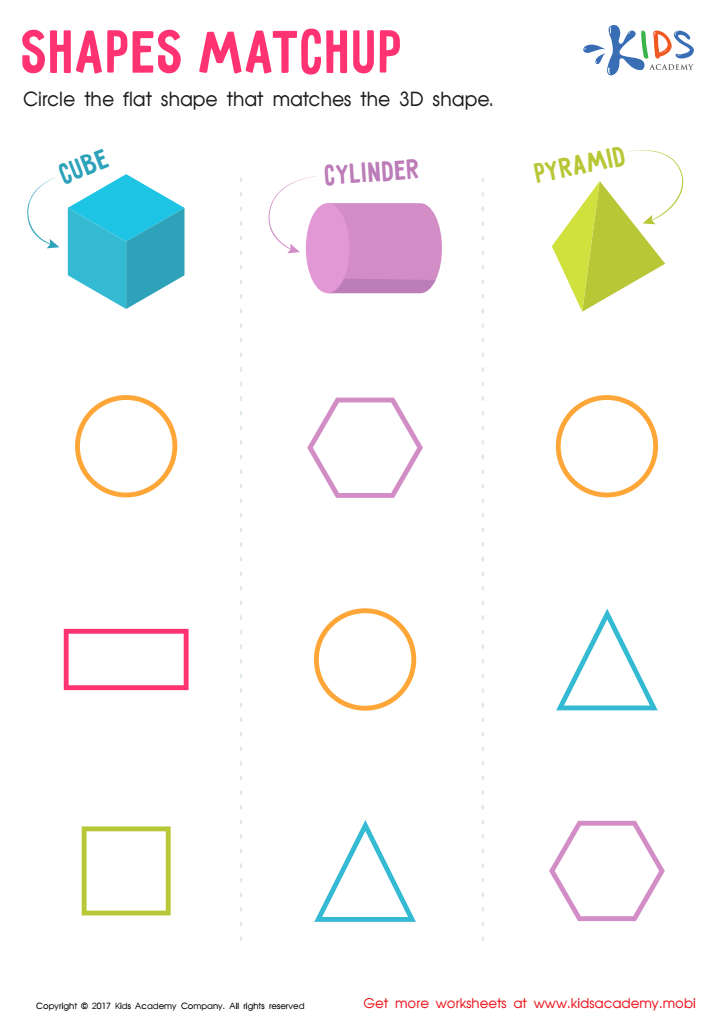

Shapes Matchup Worksheet
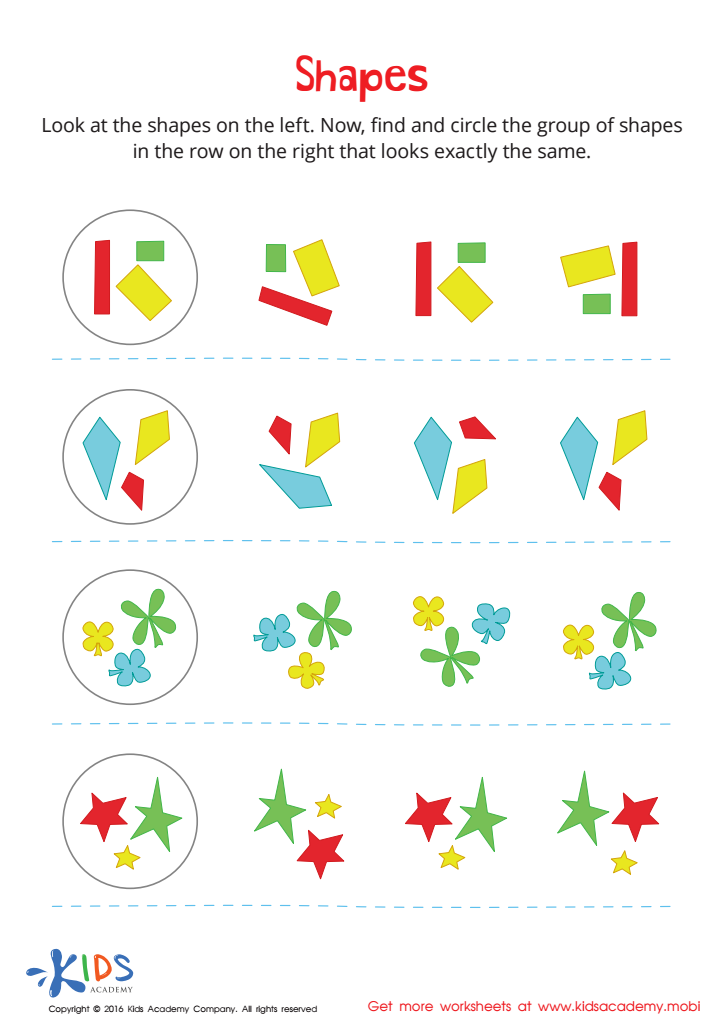

Shapes Worksheet
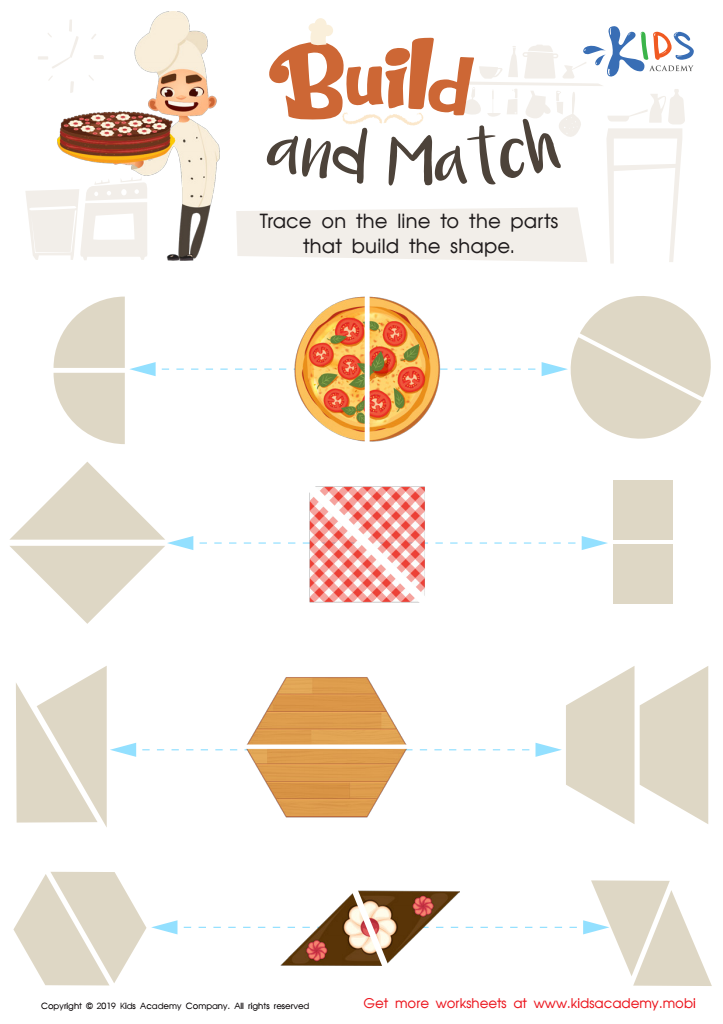

Build and Match Worksheet
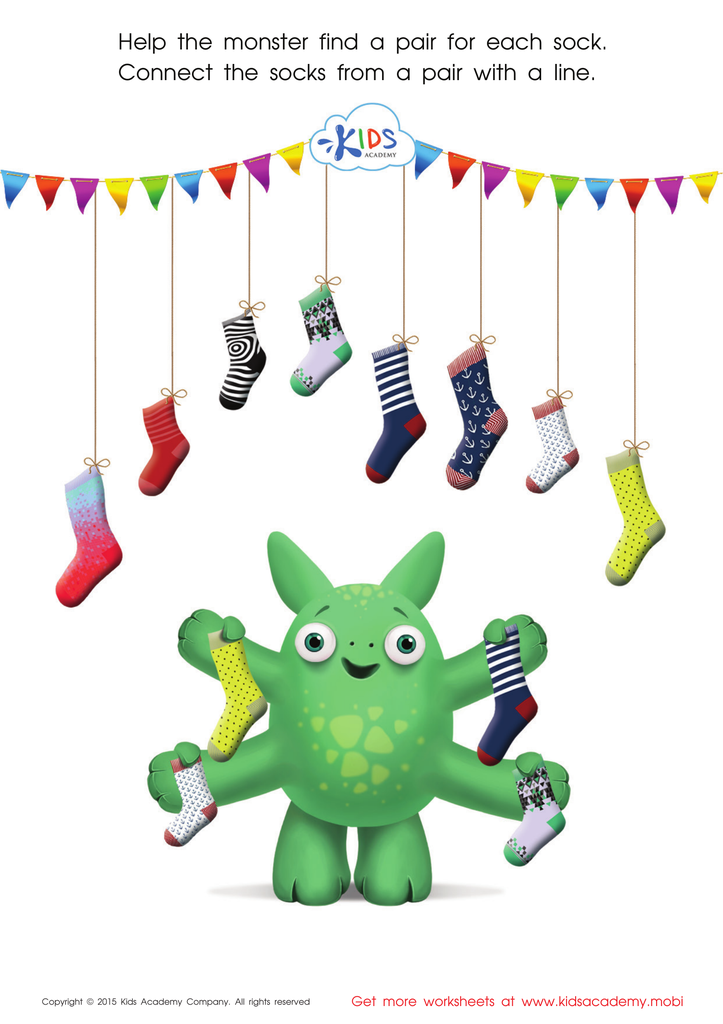

Math Matching Pairs Game: Monsterв's Socks Worksheet
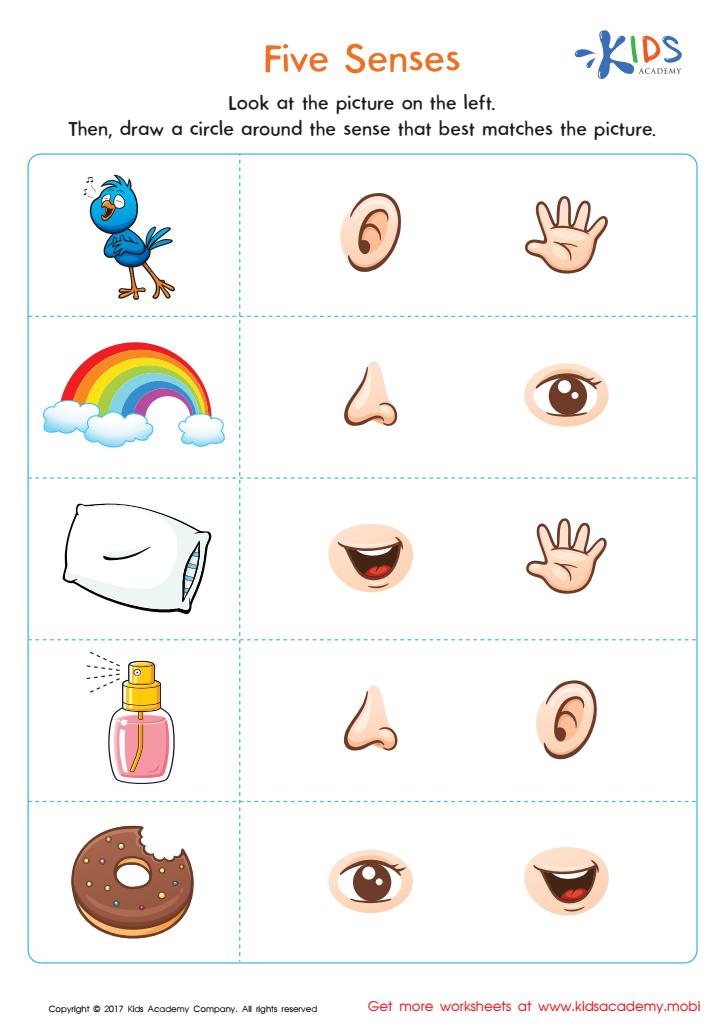

Five Senses Printable
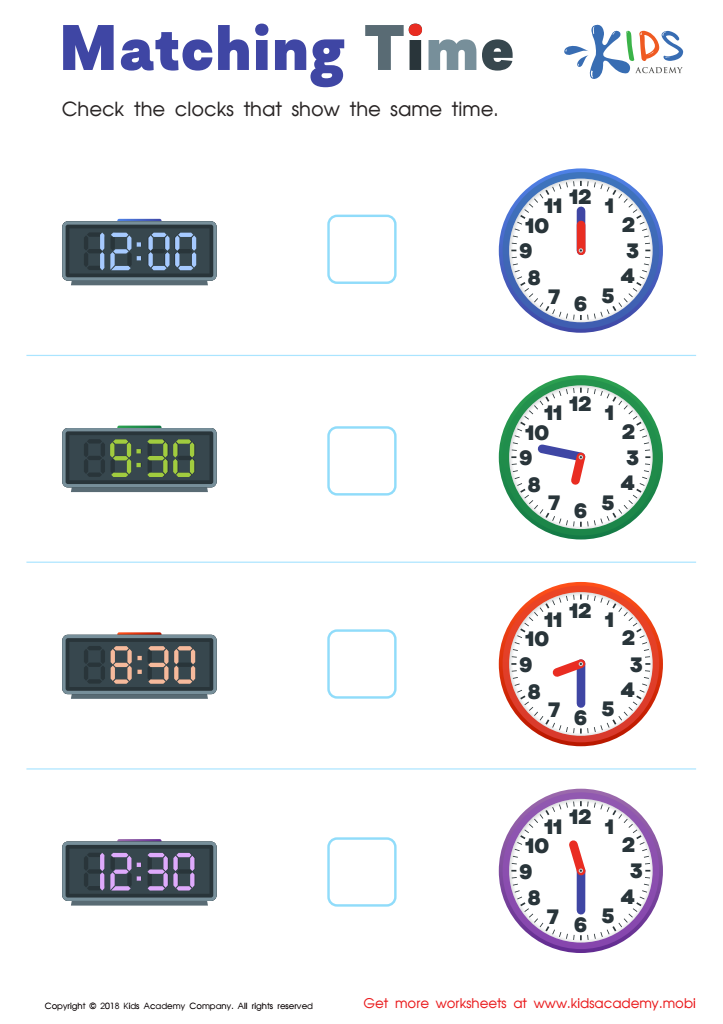

Matching Time Worksheet
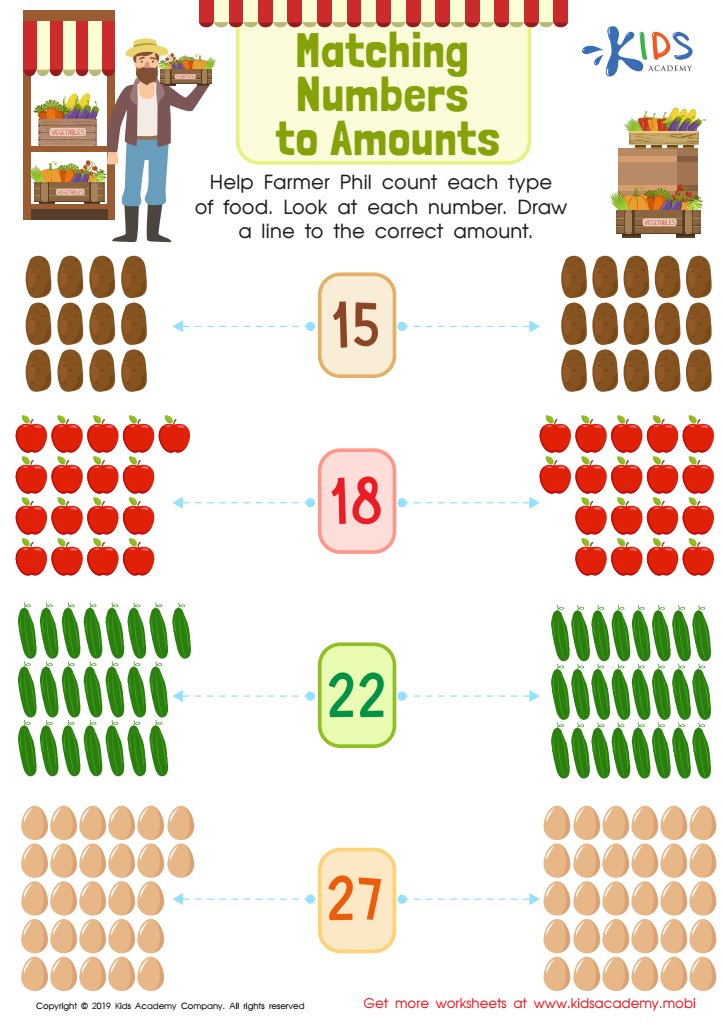

Matching Numbers to Amounts Worksheet
Matching skills are an essential component of early childhood development, particularly for ages 3 to 9. These skills form the basis for a child's ability to categorize and organize information, laying the groundwork for more advanced cognitive processes. By engaging in matching activities, children enhance their visual perception and ability to recognize patterns and similarities, which are crucial for reading and math proficiency.
For young children, matching games can significantly boost language development. As they pair objects, pictures, or words that fit together, they learn new vocabulary and comprehend the relationships between different items. This is fundamental for literacy as children start to associate sounds with letters and words with meanings.
Teachers and parents should also note that matching exercises improve fine motor skills and hand-eye coordination, which are necessary for writing and other daily activities. Moreover, these activities strengthen memory and concentration. When children are given tasks that require them to remember and locate matching pairs, they practice and improve their short-term memory.
Finally, matching exercises foster emotional and social development. Kids can gain confidence as they successfully complete tasks and learn to share, take turns, and collaborate with peers during group activities. Overall, investing time in developing matching skills equips children with foundational tools that support their academic and personal growth.
 Assign to My Students
Assign to My Students


.jpg)
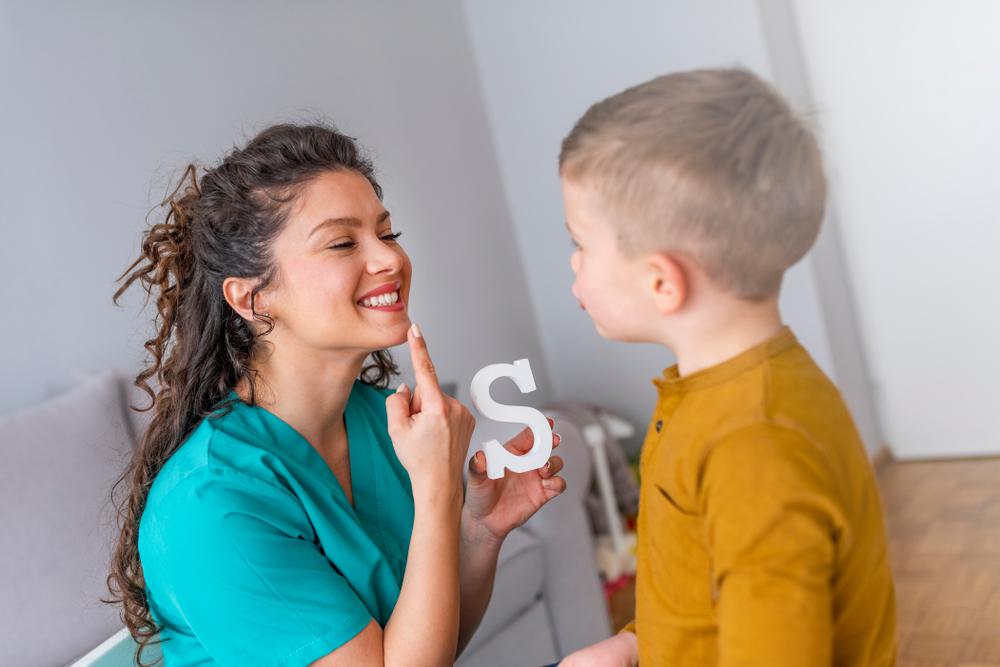



.jpg)







